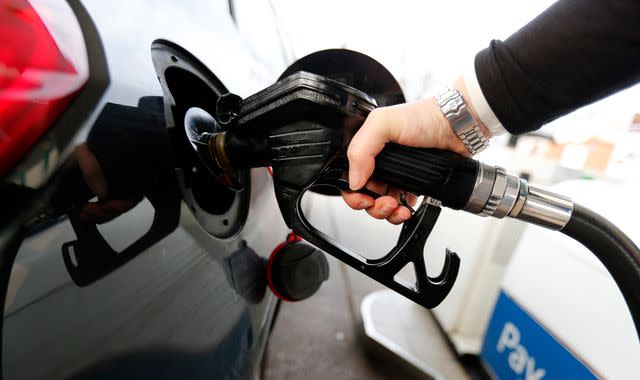Fuel pump prices 'rising again' as oil hits two-month high

Drivers are being warned fuel prices are on the rise again amid rising oil costs and suggestions motorists are still getting a raw deal.
The AA declared on Tuesday that a 10-week run of falling pump prices had come to an end.
The motoring group said while average costs were still locked at levels seen last week, a growing number of forecourts were imposing hikes to pump costs due to higher oil and wholesale charges.
Its rival, the RAC, said in a separate study that prices for both petrol and diesel remained "too expensive", accusing retailers in England, Scotland and Wales of giving their customers a "raw deal" based on wholesale trends.
Election latest:
Starmer incredulous over latest Tory attack line
Petrol should be an average 4.5p a litre lower across the three nations, its report stated, while diesel should be 8p less.
Independent retailers have long denied the RAC's claims of profiteering, claiming its criticism takes no account of the industry's increased costs for things such as wages and electricity.
There is currently a voluntary fuel price transparency scheme in place operated by the Competition and Markets Authority (CMA) after it found drivers were overcharged by supermarkets in 2022 to the tune of £900m.
A statutory Pumpwatch scheme is expected to replace it later this year, forcing forecourts to divulge their costs.
The initiative, which is modelled on an existing price comparison service used in Northern Ireland and credited with bolstering competition, could also result in the regulator being given powers to fine rip-off fuel providers.
The final make-up will be determined by whoever forms the next government after Thursday's general election.
The CMA's transparency scheme showed average petrol costs at 144.5p and diesel at 149.6p on Monday.
AA fuel price spokesman Luke Bosdet said: "The question is whether, after a significant fall in the UK's average petrol price in June, the price will repeat last year's sharp rise going further into the summer.
"It would be a blow for the impending summer getaway if the cost of road travel took off again.
"For now, filling up sooner rather later will take advantage of current lower prices. Statutory fuel price transparency coming into force later this year will therefore be a big boost for drivers facing this type of market movement in the future.
"At present, the scheme has revealed some upheaval in old patterns of fuel retailing, such as Asda offering supermarket pump prices at some non-supermarket forecourts where it has a retail presence and the independent chain Motor Fuel Group providing cheap fuel on former Morrison supermarket forecourts."
Supermarkets had historically been the market leaders in fuel price costs, often offering discounts on top to lure shoppers to their stores.
This ended during the cost of living crisis as chains invested instead in dropping prices for household essentials.
The RAC report claimed that UK wholesale fuel costs did not justify the average prices still being charged outside Northern Ireland.
It said that there were vast differences between average costs at supermarket pumps and that Shell and BP-branded sites tended to charge the most.
RAC head of policy Simon Williams said: "We will continue to highlight this disparity, along with the massive differences between major retailers' high and low prices, to the new government and the Competition and Markets Authority with a view to them being addressed by the new Pumpwatch scheme when it is up and running."
LSEG data on Tuesday showed Brent crude oil, the international benchmark, trading above $87 a barrel - levels last seen at the end of April.
Global oil costs have been rising steadily since early June.
Read more from Sky News
How British firms help to keep Russian gas flowing into Europe
New free streaming service launched in the UK
Some of the increases can be attributed to rolling production cuts by major oil-producing nations in the OPEC+ cartel, which includes Saudi Arabia and Russia.
The conflict in the Middle East, disruption to shipping in the Red Sea and forecasts of rising demand in China have also weighed.
Expectations of a 5% lift in drivers using America's roads during the peak summer holiday season were helping drive the price higher on Tuesday, according to market analysts.
Hani Abuagla, senior market analyst at XTB MENA, added: "Furthermore, Hurricane Beryl impacted sentiment, posing a threat to oil production if it shifts toward the Gulf of Mexico.
"These uncertainties led to further market volatility."


